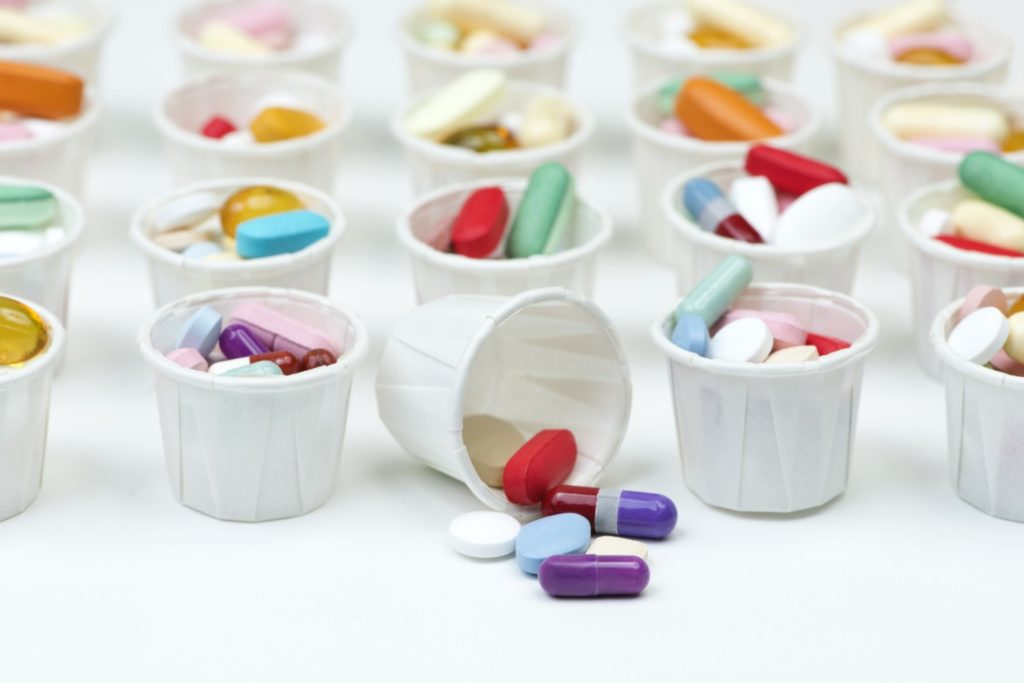Have you ever wondered if a problem in your mouth is affecting the rest of your body? Well, it could be. For example, gum disease is linked to a host of illnesses including heart disease, rheumatoid arthritis, and diabetes to name a few.
Brushing, flossing, and regular visits to the dentist can protect you from far more than cavities. Here at Children’s Dental Center, we want you to know how oral health is linked to overall health, so we’ve put together this guide. Protect yourself by learning more.
The connection between oral health and overall health
There is a symbiotic relationship between oral health and overall health. General health can affect oral health. Conversely, oral diseases can affect general health.
How is this possible?
Much like the rest of your body, your mouth is filled with bacteria. In fact, more than 500 bacterial strains have been identified in dental biofilm. Under normal circumstances, good oral care and your body’s natural defenses prevent these bacteria from harming you. The oral mucosa is one such barrier that provides critical defense against pathogens. Salivary secretions are a second major line of defense. The body uses saliva to wash away food and acid-producing bacteria in the mouth.
Ongoing inflammation in your mouth mixed with other conditions can allow bacteria to enter the bloodstream, which in turn can lead to inflammation in other parts of your body. Additionally, certain medications such as decongestants and antihistamines can reduce the amount of saliva production.
What conditions or diseases might be linked to poor oral health?
There are a number of conditions or diseases that can share a link with poor oral health. Let’s examine a few:
- Impaired speech- Early tooth loss caused by advanced tooth decay can lead to impaired speech development.
- Deteriorating educational performance- Chronic dental pain can lead to inability to concentrate on important early learning experiences, absences from school or child development programs, and difficulty completing homework.
- Difficulty sleeping- Infants and children with chronic dental pain through severe oral disease may have difficulty sleeping.
- Reduced self-esteem- Children with severe oral disease may be reluctant to smile due to embarrassment about the appearance of their teeth or lack thereof.
- Poor diet- Children without a proper diet may lack the nutrients they need for a healthy mouth. As a result, oral disease may lead to difficulty chewing, which in turn leads to a more modified diet that lacks proper nutrition.
- Diabetes- If you have diabetes, you’re already at increased risk of developing gum disease because diabetes reduces the body’s resistance to infection. Research shows that people who have gum disease have a harder time controlling their blood sugar levels. Some studies even suggest that controlling diabetes can improve the condition in the mouth. Infection may cause insulin resistance, and when you treat periodontal disease, the need for insulin may be reduced.
- Cardiovascular disease- Some research suggests that heart disease, clogged arteries and strokes might be linked to oral inflammation and infections caused by out of control bacteria (gingivitis). The inflammation helps develop plaques in the arteries, possibly increasing the chances for heart attacks or strokes.
- Pregnancy and birth- Periodontitis, a serious gum disease, has been linked to premature birth and low birth weight. The National Institute of Dental and Craniofacial Research, in fact, estimates that as many as 18 percent of preterm, low birth weight babies born in the United States each year may be attributed to oral infections. The reason is that oral bacteria release toxins, which reach the placenta through the mother’s bloodstream. Additionally, the oral infection causes the mother to produce labor-triggering substances at an abnormal rate.
- HIV/AIDS- A number of studies provide evidence that when the oral environment is compromised, the mouth can be a potential site of transmission of infectious microbes. Oral problems, such as painful mucosal lesions, are common in people who have HIV/AIDS. When left untreated, these infections can affect to the rest of the body.

What about medications?
A number of medications used to treat systematic diseases can cause oral complications, including more than 400 over-the-counter and prescription drugs. Some on the list are antidepressants, antihistamines, decongestants, and diuretics. The negative impact varies depending on the response of the individual patient and the duration of medication use, but lack of saliva production is a common side effect. Saliva is needed to help clean the mouth. This is why it is important to tell your dentist about medications being taken or changes to their dosages.
How can I protect my oral health?
To protect your oral health, practice good oral hygiene every day. Things you can do are:
- Brush your teeth at least twice a day with fluoride toothpaste.
- Floss daily.
- Eat a healthy diet and limit between-meal snacks.
- Replace your toothbrush every three to four months or sooner if bristles are frayed or you’ve been sick.
- Schedule regular dental checkups and cleanings.
- Contact your dentist as soon as an oral health problem arises.

Summing it up
If you didn’t already have enough reasons for good oral health, now you do. There is a direct relationship between your oral health and your overall health. Resolve to practice good oral hygiene every day and schedule regular dental checkups and cleanings. You’re not just making an investment in your overall health today, but you’re investing in your future, too.
Here at Children’s Dental Center, we realize how important of a decision it is in choosing the right pediatric dental office for your child. We are confident that you will be more than satisfied with choosing our office for all your child’s dental needs. Our staff is trained and skilled, and we strive to provide energetic and fun-loving service to each of our patients.
Request a visit today by calling us at 901-861-9668 or email [email protected] We hope to see you soon!
